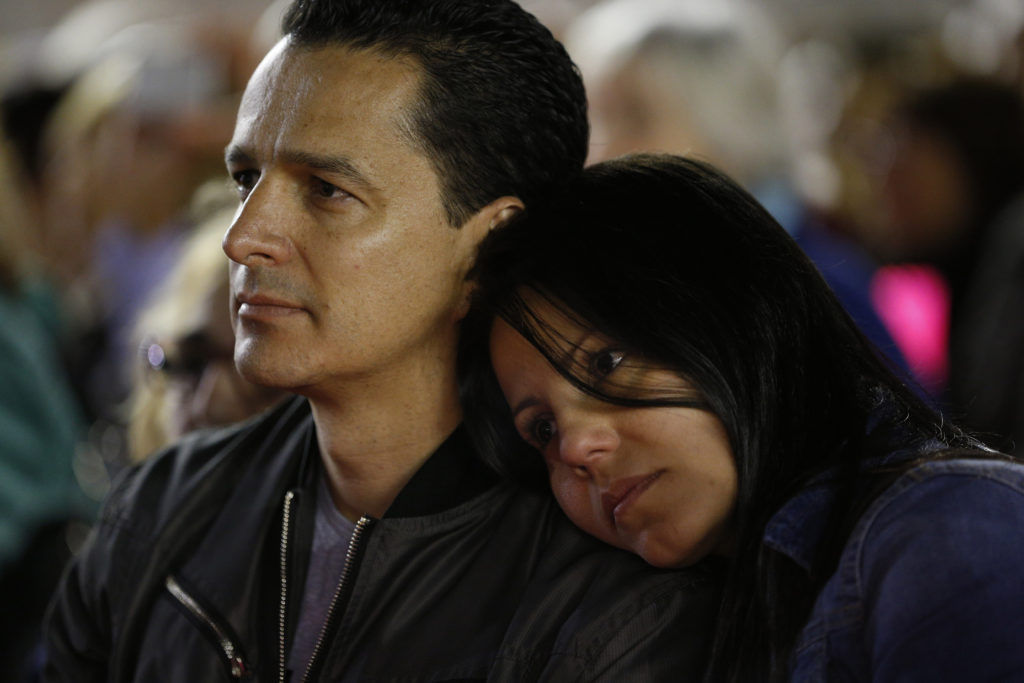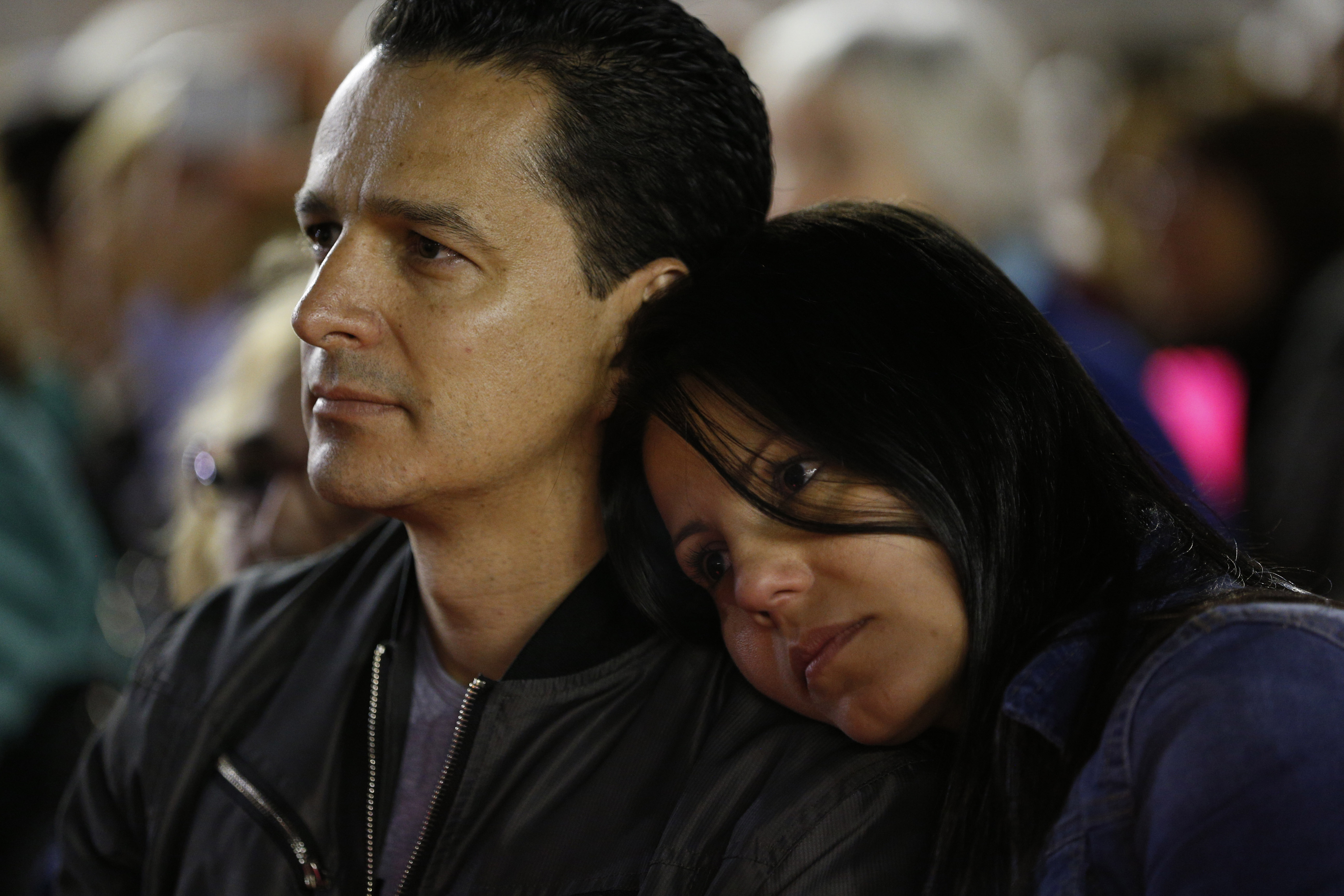
VATICAN CITY (CNS) — Families need to hear homilies that connect the Gospel to the troubles and joys they experience, said a synod participant.
Maria Gomes, the Family and Life director at St. Mary’s Church in Dubai, and an observer at the Synod of Bishops on the family, said the typical scenario is “the priest just talks about the Gospel, ‘Peter said this, John said this’ and then it’s finished and it’s done and over.”
But Catholics, she said, want their priest “to cover real facts of what’s happening in the family and how important the family is today.”
[quote_box_right]
Join the discussion
This is a top story on Catholic News Service. Its reporters want to hear from you.
Visit CNS on Facebook to share about some of the best homilies you’ve heard connecting the Gospel to real life.
[/quote_box_right]
Gomes, who is one of a number of non-voting lay observers, said urging priests around the world to connect the Gospel to people’s real lives is the focus of her presentation to the synod.
Accompanying God’s word with a real example or story from someone’s life helps people know “the facts, that there are so many other people also having problems” and how Christ offers healing, Gomes told Catholic News Service Oct. 7.
While the quality of homilies is important, the pastor’s personality and the dedication of the community are also key, she said.
One priest they had in Dubai, she said, was very outgoing, always visiting the schools and talking with families. She said that closeness helped couples who were in irregular unions decide to get married in the church.
“Our secret is when they come for the children’s baptism,” she said.
The church community and the priest speak with the family and help guide them through what often can be a long process of discernment and discovering the importance of the sacrament of matrimony. Other married couples “start calling them, talking to them, getting to know them a little bit better, drawing them to the church.”
Sometimes they find out people were not getting married in the church not for a lack of faith, but because of economic restraints or because they didn’t want the hassle of getting the proper documents from their parish back in their home country, she said.
St. Mary’s Church in Dubai is “the largest pilgrim parish in the world,” she said, serving more than 100,000 Catholics who are foreign workers and non-citizen residents from the Philippines, India and other South Asian nations. Gomes, with her husband, moved from Bombay, India, 31 years ago and raised their three children in Dubai.
While most parishes serve a community made up of citizens or long-term residents, St. Mary’s reaches out to a largely itinerant congregation where “many of them use Dubai as a steppingstone for greener pastures.”
Gomes said many of the church programs and outreach they offer are based on concrete input and feedback from priests and counselors who work at the parish.
Without violating people’s privacy or breaking the seal of confession, counselors and priests take the recurring issues they hear and translate them into ideas about “what people are hungry for,” Gomes said.
For example, extramarital affairs and conflicts with in-laws are frequent problems threatening parishioners’ marriages, she said.
As a response, Gomes runs “Marriage Encounter” weekends and workshops to help couples better communicate, build more intimate and solid unions and deal with the many challenges they face.
The parish offers workshops and seminars on the sacraments and expatriate workers’ rights; they invite medical professionals to talk about breast cancer awareness and other health issues; they help widowed spouses with a “Hope and Life” program; and they offer children a “Holyween” celebration at the end of October to teach Christian virtues through the life of the saints.
Parishioners form networks and are deeply involved in parish life, she said, adding that it is not unusual to still see people still at church at 9 p.m. “There’s so much brotherhood and community,” she said. “I feel alive in that parish.”
Gomes said she wants to set up new programs to help couples facing infertility.
With Catholic teaching emphasizing the procreative value of marriage, some couples feel “the whole purpose of marriage is children,” she said. “They come to church, but there’s a deep sadness in them” because they don’t have kids like their peers and “what happens is they start drawing away.”
Gomes said she also wants to do something to address the loneliness many migrant workers face when their spouse has stayed back in their home country.
A woman once told her, “‘When I go home from work, I prepare a lovely meal, but I have no one to share it with. I’m sitting there all alone trying to enjoy it.’ And then I realized how lonely that is.”
The individuals and families St. Mary’s serves “have problems, there are problems, it’s not a rosy picture. That’s why we need a lot of healing and that’s why we do a lot of workshops and seminars so there is healing as well.”
Migrants often go to foreign lands to follow a dream; sometimes that dream materializes and sometimes it doesn’t, she said.
“There are heartbreaks, there’s depression and sadness,” she said. But people must take the good and bad “in stride and make the best of it, keeping God always present in your life at all times.”
“My message is: Never stray from him, keep him close and you can fight any battle. I call him my bodyguard,” she said with a smile.







